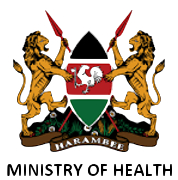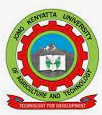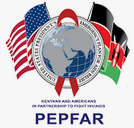The Health Informatics, Governance, and Data Analytics (HIGDA) is a United States of America International Development (USAID) 5 year funded project. The membership of the project comprises of JKUAT, Palladium International and Path International.
The project is primarily mandated to support the health sector of the Government of Kenya (GOK) in strengthening national and county-level organizational and management capacity in the areas of governance, health informatics (HI), data analytics (DA), monitoring, evaluation, learning, and accountability.
The project’s purpose is to strengthen the implementation of national Health Information Systems (HIS) /Monitoring and Evaluation (M&E) policies, strategies, standards, and guidelines at the national level and in 20 focus counties for HIV, maternal, newborn, and child health (MNCH), nutrition, and malaria programs.
The project’s main partners are the Division of Monitoring and Evaluation, Health Research, Data Analytics and Health Informatics (DivMEHRDI) in the Government of Kenya (GoK) Ministry of Health, the national HIV, reproductive, maternal, newborn and child health (RMNCH), nutrition, and malaria programs in 20 focus counties. In addition, HIGDA works closely with USAID funded County Measurements, Learning, and Accountability Programs (CMLAP1/TupimeKaunti and CMLAP2), HealthIT, and other local United States Government (USG) funded implementing partners. HIGDA is also expected to partner with other public universities such as Rongo, Kabianga, Maseno University and Masinde Muliro in rolling out the revised curriculum of Bachelor of Science in Health Informatics and Information management

County health representatives during a teaming session with the HIS expert to have an insight on the health information systems industry
The Digital Health Applied Research Centre (DHARC), operationalized at JKUAT under HIGDA, slated to play a crucial role in providing the evidence necessary for operationalizing Kenya’s national HIS blueprint, while supporting wide-scale implementation of interoperable solutions based on its policies and protocals.
The HIGDA project developed:
- Suitable certification framework for Health Information Systems, using appropriate standards and open-source codes.
- Provided an environment for developers and operators to test and certify health information systems
- Identified and developed viable open-source Digital Health artifacts including software, products, and tools.






